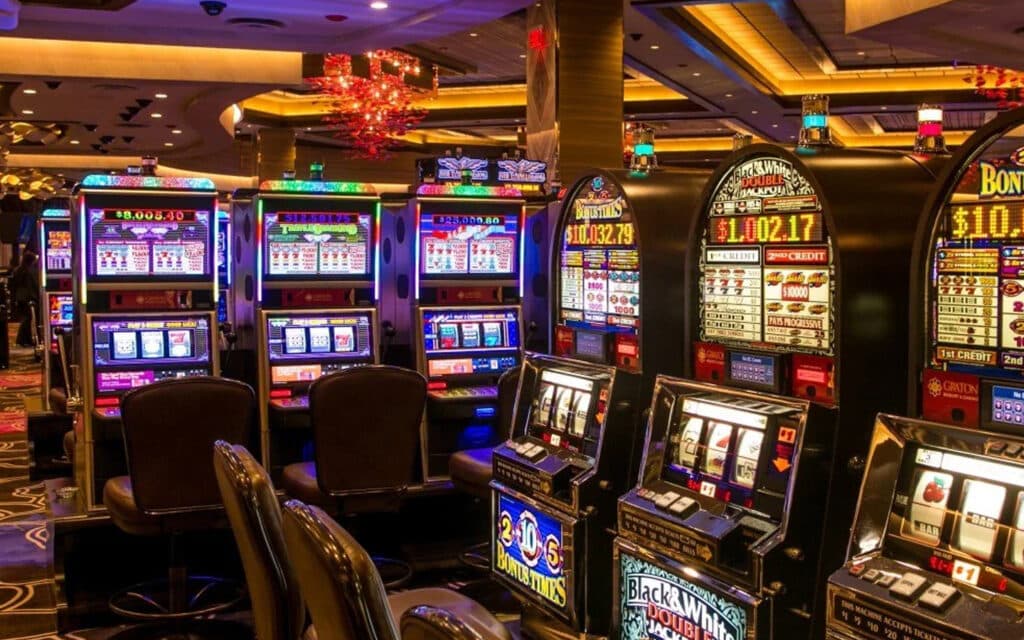In what way Gambling Games Reflect our Mankind's Journey

Casino entertainment have long been a significant aspect of human culture, delivering not just entertainment but a captivating reflection of our hopes, ambitions, and fears. From the spinning reels of a slot machine to the skill-based strategies of poker, these games represent a range of human emotions and incidents. At their core, casino games are not just a chance to win money; they are a reflection of life itself, where risk versus reward merge and luck can change in an moment.
As players convene around tables or sit in front of brightly lit machines, they take part in a tradition that transcends mere playing. These games echo our instinctive desires for social interaction, thrill, and the search for fortune. They also unveil deeper truths about human nature, such as our relationship with fate and the excitement of the unknown. In exploring casino games, we reveal not only the rules of play but also the complex weave of the human journey, showcasing our interconnected narratives of hope and reality.
The Mind Behind Gambling
Wagering is deeply rooted in human psychology, appealing to various feelings and desires. The excitement of risk-taking is a fundamental aspect that draws players in, be it the thrill of spinning a roulette or the anticipation of drawing a winning card in a poker game. This adrenaline is frequently likened to other forms of thrill, as the unpredictability of outcomes triggers a unique psychological response. Gamblers often become captivated by the chance of striking it rich, leading to an irresistible draw toward gambling games.
Additionally, an essential component of the psychology behind gambling is the concept of hope and ambition. Players often indulge in fantasies of financial freedom and the opulent lifestyle that can accompany winning. This optimism fuels their ongoing participation in gambling, as it provides a sense of meaning and the belief that a life-changing win could be just one wager away. The narrative of beating the odds and achieving success resonates with many, strengthening their commitment to play and involve themselves with these games.
Lastly, social aspects play a crucial role in gambling psychology. Gambling venues are designed to foster social interaction, where players gather to share the journey of wins and losses. This communal aspect not only amplifies enjoyment but also influences behavior, as individuals often mimic the actions of others around them. The social validation found in mutual thrill can magnify the emotional experience, making casino games a mirror of not just personal desires but also shared involvement within the gaming community.
### Risk and Reward: A Double-Edged Sword
Gambling activities embody the fragile balance between risk and reward that resonates deeply with the human experience. The thrill of placing a bet is often accompanied by a surge of excitement, as gamblers are confronted with the possibility of winning big, yet conscious of the potential to suffer losses. This dual experience reflects a core aspect of life: the choices we make often come with inherent risks, and the pursuit of reward can drive us to take chances we might not typically consider. In this way, gambling activities echo real-world decisions, enticing players to gamble not just their funds, but also their aspirations.
The allure of grand jackpots and payouts fuels a sense of optimism, encouraging players to envision a brighter future that could arise from a fortunate turn of the wheel or dealing of a hand. This hope can compel individuals to engage in greater risks, urging them to push their boundaries in search of monetary success. However, just as in life, the results of these decisions can lead to both victory and despair. The narratives of both big winners and those who have faced losses everything at the casino demonstrate the unpredictable nature of chance and its consequential effect on our futures.
Ultimately, the interaction of engaging with gambling activities serves as a potent reminder of the human condition. Every session played is loaded with the tension of risk, as players weigh the rewards against the dangers. This dynamic not only highlights the thrill that comes with gambling but also unveils the weaknesses that come with the longing for more. As we journey through the challenges of decision-making and results in both the casino and in life, we find that the pursuit of risk and reward shapes our character and experiences in deep ways.
Society and Loneliness in Gambling Culture
Casino environment is a special blend of communal interaction and personal pursuit, reflecting the tensions of human experience. Gamblers often gather around games, experiencing in the thrill of the game, rejoicing in wins, and sympathizing over losses. This social aspect is essential, as it establishes a sense of belonging and camaraderie among diverse groups of individuals. Regular visitors to gaming establishments may form friendships and develop routines, turning the gambling venue into a alternative home where they feel connected to a larger community of gamblers. King88
However, the allure of gambling games can also result to loneliness. As players become engrossed in the excitement of gambling, they may isolate from personal relationships or fail to interact with the environment outside the casino. For some, the search of a windfall can overshadow genuine connections, leading to loneliness. https://king88a.org/ The situation of being among people yet feeling solitary is not rare, as the focus shifts from collective fun to the private concerns of each player’s path.
This interplay of society and solitude creates a rich tapestry that defines casino culture. It showcases the complexity of human interactions, where joy and despair coexist. Gambling venues serve as both a sanctuary for social engagement and a stage for individual challenges, illustrating how deeply connected our desire for companionship and the personal quest for wealth can be. In navigating this landscape, gamblers confront their own narratives—seeking both the rush of the game and the fellowship of fellow gamblers, ultimately mirroring the wider spectrum of individual experience.
